Welcome Email Best Practices
A welcome email is the first message a website visitor receives after subscribing. This email allows a user to get acquainted with a company and find out the benefits it provides. Brands empower it with useful checklists, videos, and testimonials that smooth the lead’s path down the sales funnel.
In this video, the SendPulse marketer shares essential tips and brilliant examples to follow while creating a welcome email. Get inspired!
Welcome emails are an essential part of marketing performance and results because they help to create an excellent first impression. Also, they are quite powerful messages, given that they generate four times more opens and five times more clicks when compared to other email marketing campaigns. Moreover, they have a 50% average open rate, making them 86% more effective than regular newsletters.
As you can see, it is worth sending welcome messages, and here are the best practices for sending standing-out welcome campaigns. Choosing an email marketing service will help you automate sending campaigns and make use of advanced instruments for better performance.
Deliver on Your Promises
If marketers offer a lead magnet during the subscription process, they should provide it right in the welcome email. This way, customers will be encouraged with an incentive to purchase, and the brand, in its turn, will take a step towards building trust. For example, Banfield offers a discount of $15 when the recipients take their pets to the hospital.
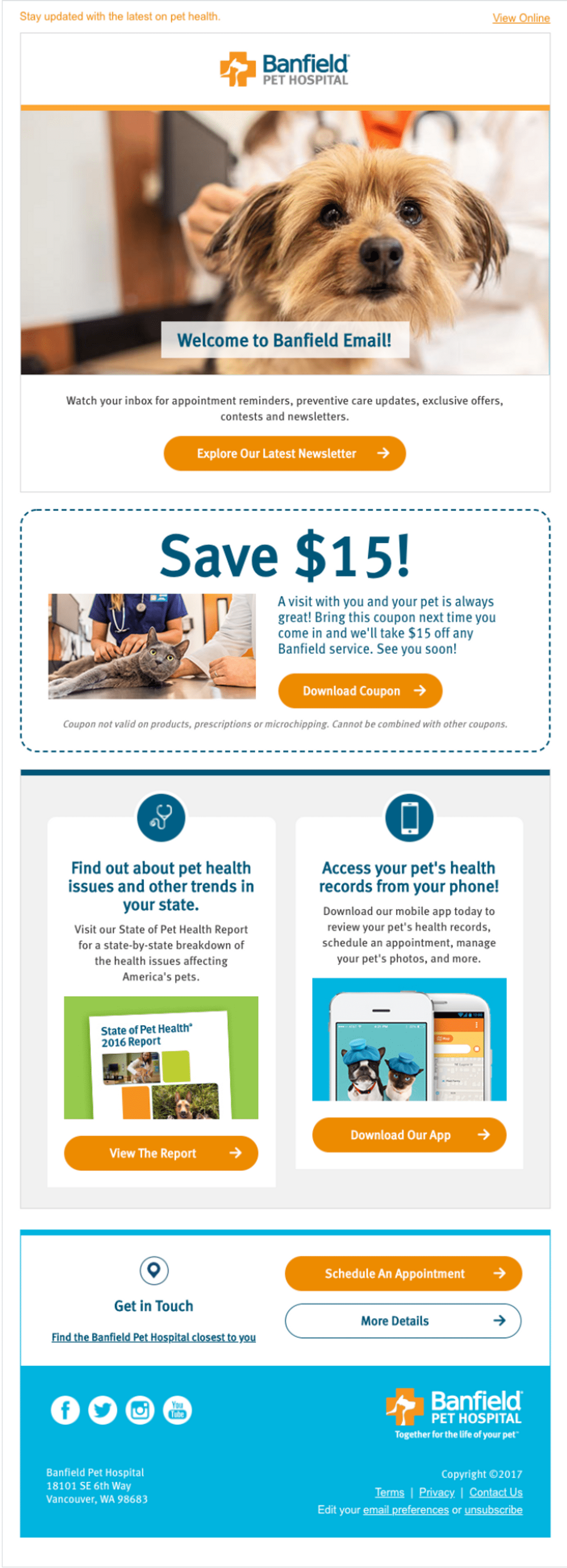
Personalize Emails
This marketing instrument lets brands send relevant campaigns to each recipient by utilizing their data like name, gender, place of living, etc. You may put this information both in a subject line and an email body. To achieve more personalization, mention the goods that the subscribers have viewed previously on the website or share content that the subscribers prefer.
Here’s a step-by-step guide to email personalization in SendPulse.
Check out the way Duolingo personalized their email to congratulate a user on a year of hard work.
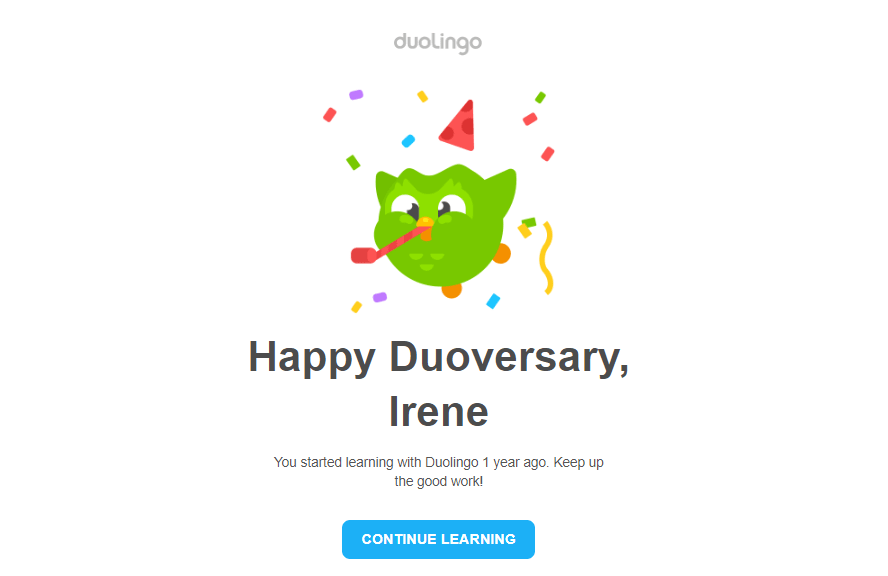
Set Expectations
Use a welcome email to tell subscribers what they can expect from your brand in the future. If, for example, a business intends to send a newsletter weekly or bi-weekly, then it should be specified in the email. Include the type of email subscribers can expect to receive. To understand and meet customer expectations, however, ask customers to share their preferences.
The Banana Republic inserts the email preference section to each email.
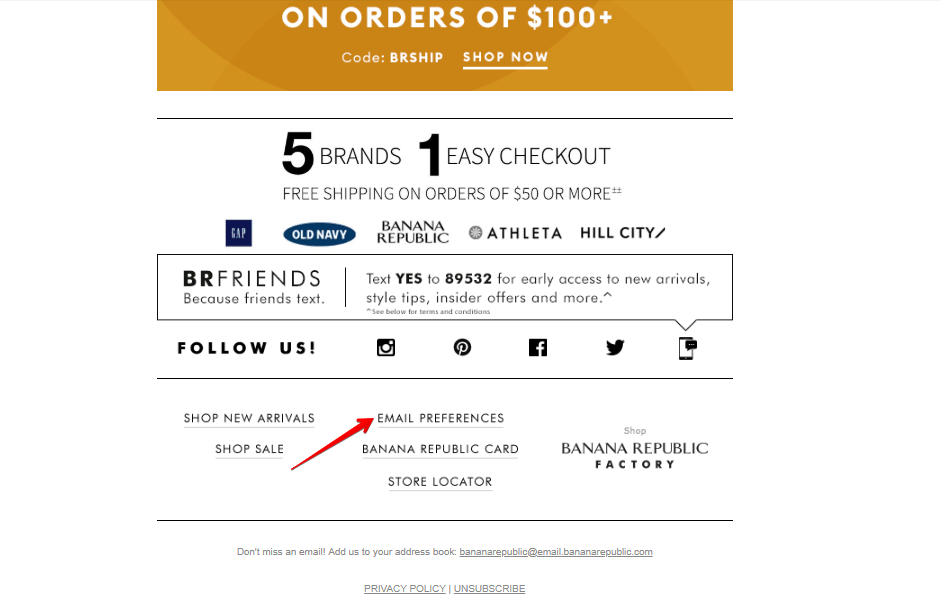
Describe the Product or Service Briefly
A welcome email should motivate the new subscriber to try out a product or service. Make sure to include a tutorial, manual, or short description of what your brand offers. Demonstrate your product from the most appealing angle and show that it is easy and practical to use.
In this welcome email, the Muse explains how their service helps subscribers to find a job they love.
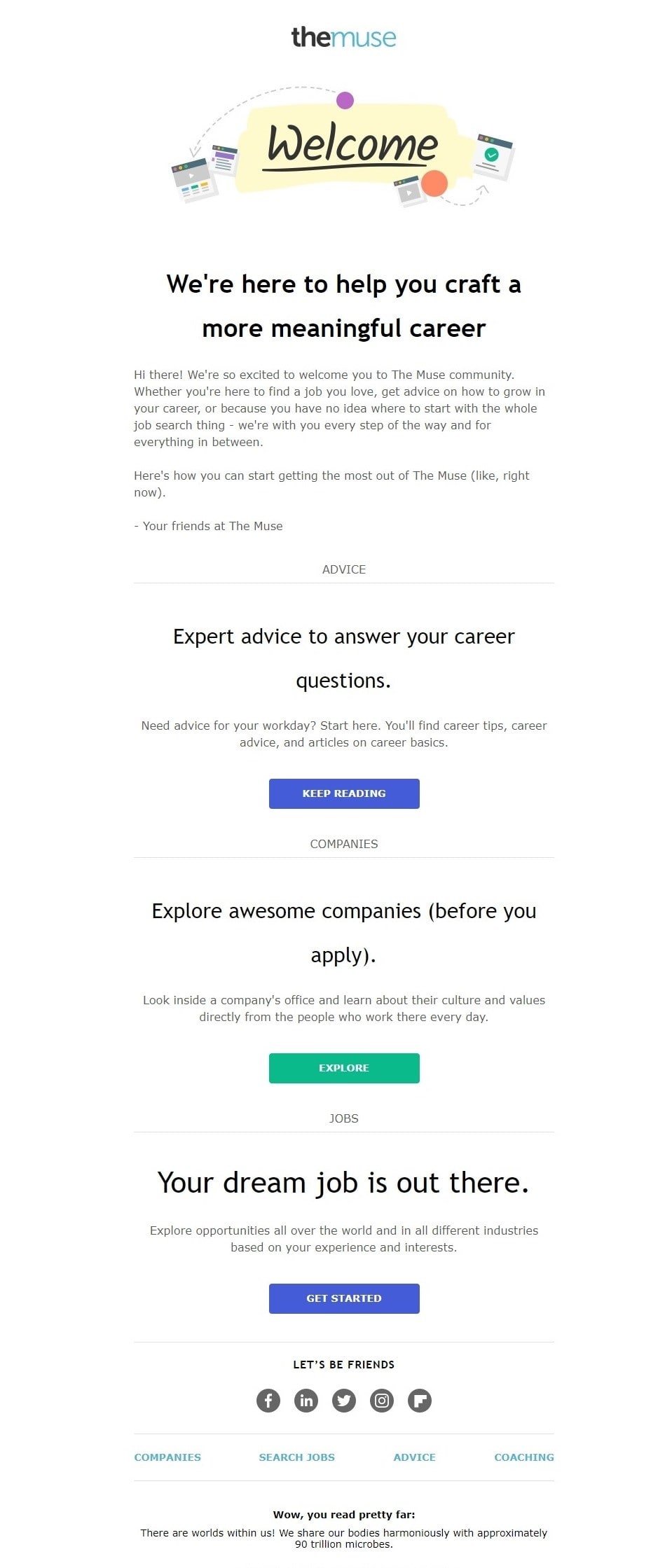
Include a Video
It is a good idea to include a brief introductory video in your welcome email. Videos are more engaging and make subscribers feel like they are having an in-person conversation with a brand representative. It can be a warm greeting from the CEO or a demonstration of the product.
Here is a welcome email from Monday.com that includes a video on how to get started with a service.
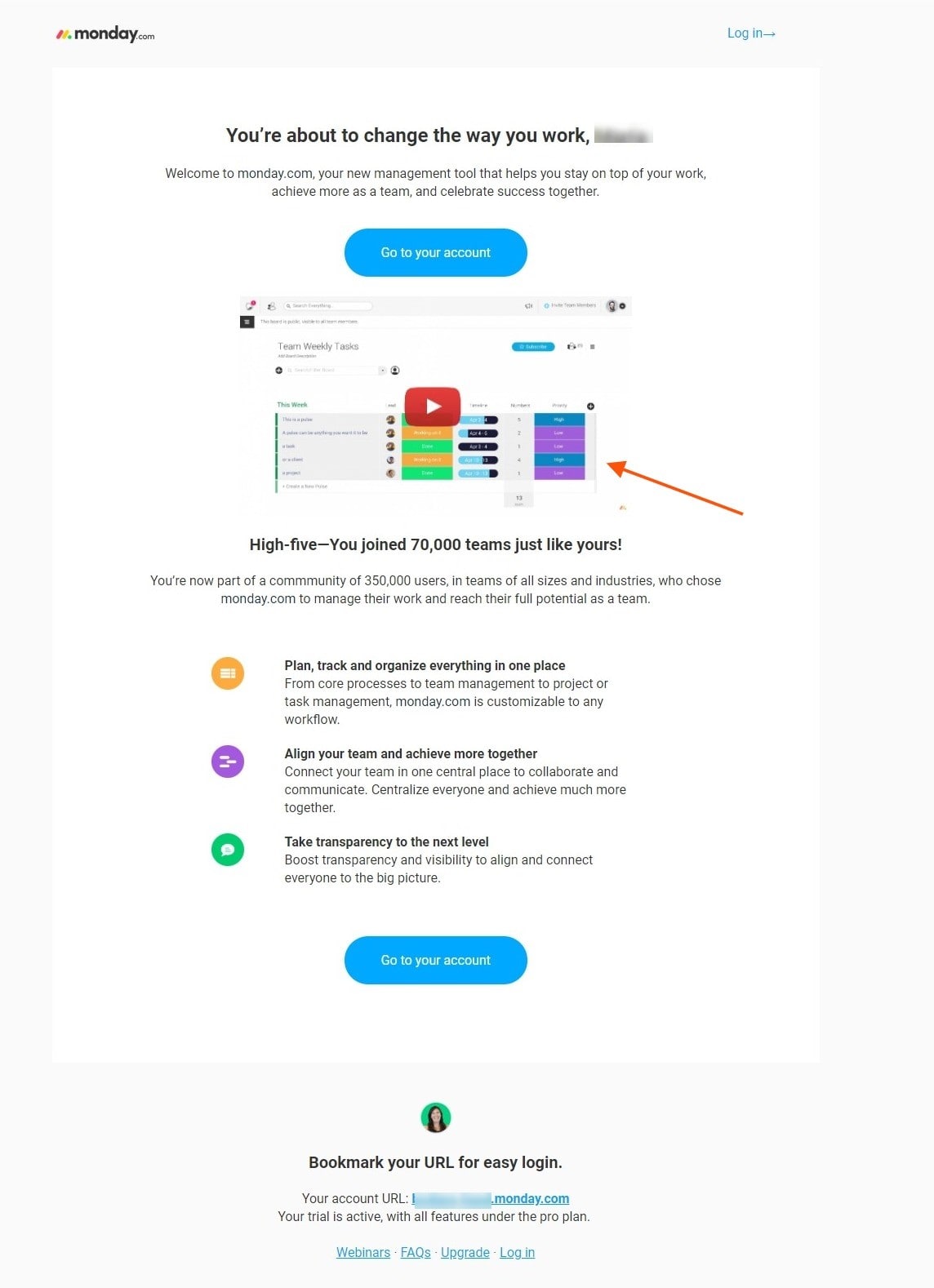
Provide Exclusive Offers
Encourage new leads to try out products by providing exclusive welcome offers. The offers might be a discount on the first purchase, free trial, buy-one-get-one-free, or free shipping. Welcome suggestions make it easier for subscribers to buy a product from you.
Here is a 20% discount offer on the first purchase from Bonobos.
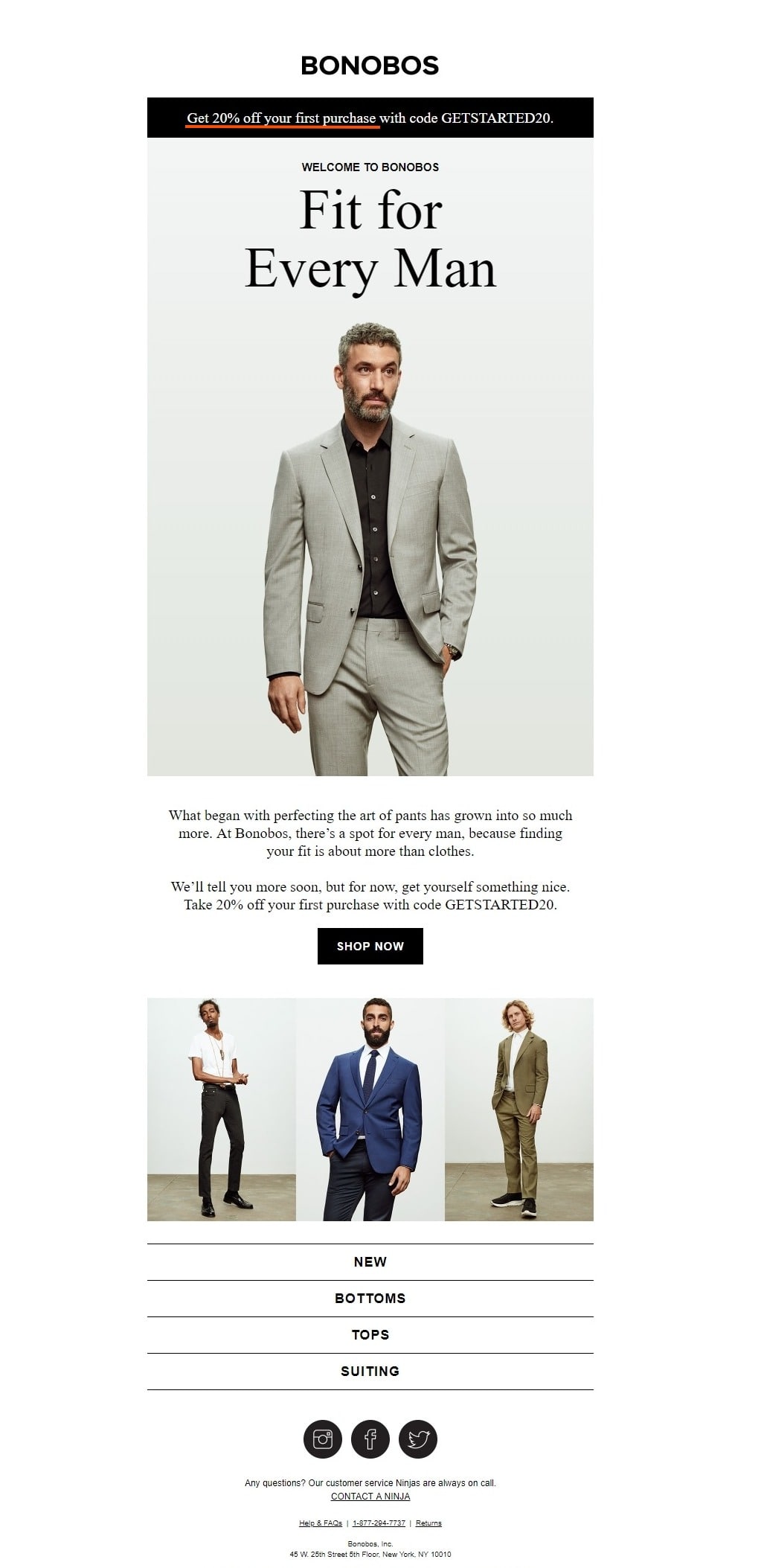
Send Onboarding Welcome Series
Set up an onboarding series that follows your welcome email. After the welcome email is sent, the next couple of emails will introduce the subscriber to everything the brand has to offer. It may be a drip email campaign, the aim of which is to educate users and slightly move down the sales funnel. It is possible to set up an onboarding email flow that starts automatically when a visitor subscribes using SendPulse. Follow this step-by-step guide!
Below is an onboarding welcome series created in SendPulse. It starts right after a user subscribes. First, they receive a welcome email. In 30 minutes, they’re offered information about SEO, and in 3 days, they receive a list of other courses in online advertising. This approach allows marketers to segment customers according to their interests.
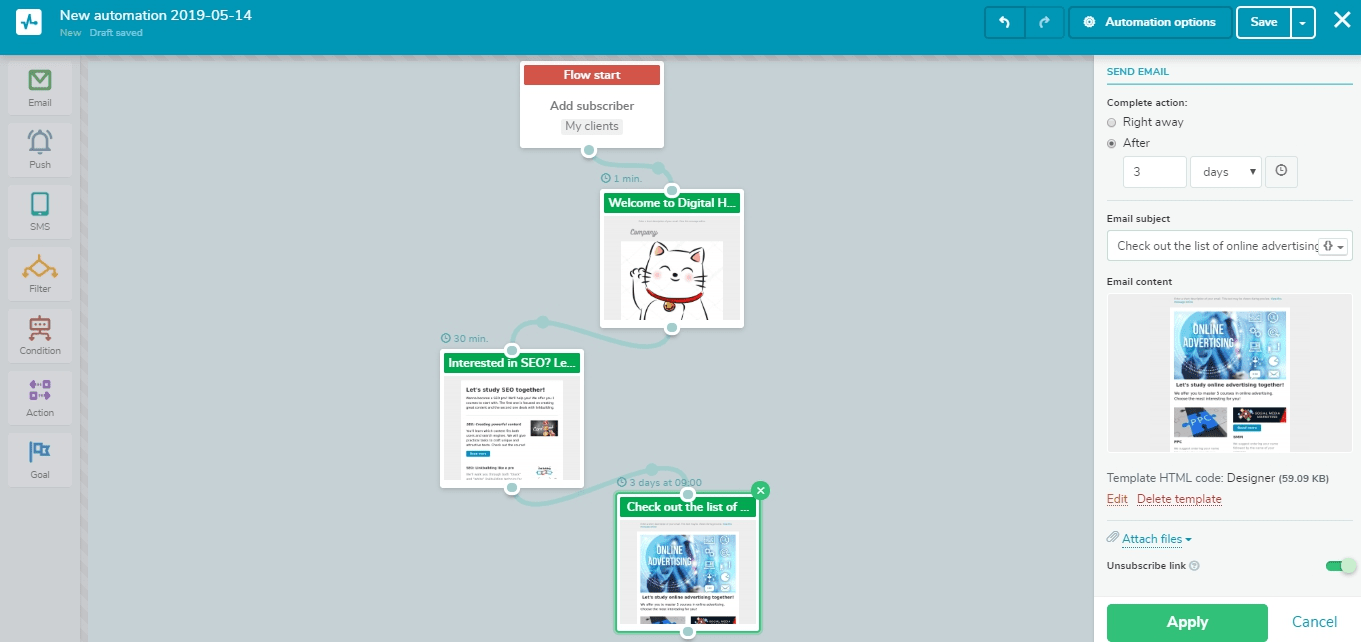
So, now when you know pretty much about welcome emails, automate their sending for free with SendPulse. Use pre-designed templates, set conditions to ensure a highly-targeted approach, and monitor your email performance.
Last Updated: 08.12.2020
or